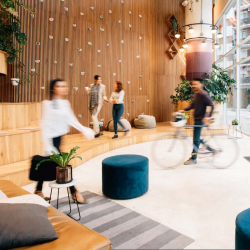To provide the best experiences, we use technologies like cookies to store and/or access device information. Consenting to these technologies will allow us to process data such as browsing behaviour or unique IDs on this site. Not consenting or withdrawing consent, may adversely affect certain features and functions.
The technical storage or access is strictly necessary for the legitimate purpose of enabling the use of a specific service explicitly requested by the subscriber or user, or for the sole purpose of carrying out the transmission of a communication over an electronic communications network.
The technical storage or access is necessary for the legitimate purpose of storing preferences that are not requested by the subscriber or user.
The technical storage or access that is used exclusively for statistical purposes.
The technical storage or access that is used exclusively for anonymous statistical purposes. Without a subpoena, voluntary compliance on the part of your Internet Service Provider, or additional records from a third party, information stored or retrieved for this purpose alone cannot usually be used to identify you.
The technical storage or access is required to create user profiles to send advertising, or to track the user on a website or across several websites for similar marketing purposes.
 Some 39 percent of office workers are so-called hybrid “misfits” and don’t have the right balance of home and office working, a survey funded by the Economic and Social Research Council claims. The researchers discovered that workers who were in the office more often than they wanted were more likely to want to change jobs, have lower job satisfaction and have worse work-life balance.??The research suggests that office working is often beneficial for people who are able to enjoy hybrid working. More →
Some 39 percent of office workers are so-called hybrid “misfits” and don’t have the right balance of home and office working, a survey funded by the Economic and Social Research Council claims. The researchers discovered that workers who were in the office more often than they wanted were more likely to want to change jobs, have lower job satisfaction and have worse work-life balance.??The research suggests that office working is often beneficial for people who are able to enjoy hybrid working. More →































